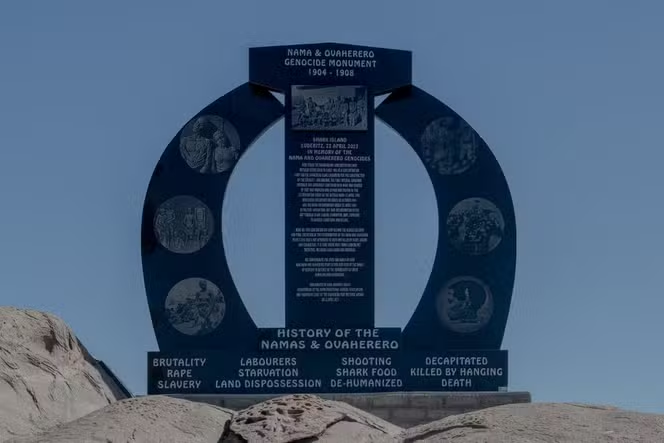The Namibian government has instructed that the long-awaited joint declaration between Namibia and Germany on reparations for the Nama and Ovaherero genocide be finalized and signed by March 2025. Sources familiar with the negotiations indicate that the document must be concluded before this deadline, with crucial steps planned for the coming weeks.
The agreement, which will be signed by Namibia’s Minister of International Relations, Peya Mushelenga, and Germany’s Foreign Minister, Annalena Baerbock, is set to be presented to the German parliament by the end of January. Both countries’ legislative bodies are expected to ratify the deal soon after, enabling Germany to issue an official apology and finalize reparations arrangements.
A source familiar with the matter shared, “Cabinet has made it clear that the agreement must be signed and presented to the Bundestag by January’s end. Both parliaments will then ratify it, allowing Germany to apologize and finalize the deal.”
Efforts to contact Minister Mushelenga for comment were unsuccessful, and no response was received from George Simataa, Secretary to Cabinet.
Germany’s Financial Commitment Framed as Atonement, Not Reparations
The draft document, which avoids using the term “reparations,” frames Germany’s financial commitment as an “atonement” for the atrocities committed during the genocide. While Germany acknowledges the genocide, it refrains from directly referring to “reparations” to prevent potential legal complications and claims from other African countries impacted by German colonialism.
Germany’s financial offer stands at €1.1 billion (roughly N$18 billion) over a 30-year period, much lower than the N$1.1 trillion demanded by the affected communities. However, the agreement includes provisions for additional funding aimed at development, economic reconstruction, and reconciliation efforts within the affected communities.
The document states, “Both governments are in agreement that the financial sums outlined in the declaration settle all aspects of the past. Germany is also committed to providing further support based on consultations with Namibia and the impacted communities.”
Community Leaders Reject Offer, Demand Higher Compensation
The draft has sparked significant resistance within Namibia, with numerous community leaders and organizations criticizing the financial offer as insufficient. Namibian President Nangolo Mbumba has publicly stated that the amount does not adequately address the long-lasting impacts of the genocide.
In response, Germany has proposed additional measures, including support for descendants of affected communities living in the diaspora. The offer includes assistance for those wishing to return to Namibia or remain in their current locations. Furthermore, a reconciliation trust fund will be established to fund developmental projects in the regions most affected by the genocide, including Hardap, ?Kharas, Kunene, Otjozondjupa, Omaheke, and Khomas.
The draft agreement notes that the Namibian government and its people have accepted Germany’s apology, viewing it as an important step towards a strengthened relationship between the two nations.
Provisions for Diaspora and Development Projects Included in Agreement
Germany’s proposal extends beyond financial compensation. The draft agreement includes provisions to support descendants of affected communities in the diaspora, with options for those wishing to return to Namibia or remain where they are. Additionally, a reconciliation trust fund will be created to fund developmental initiatives aimed at addressing the long-term effects of the genocide in Namibia’s most affected regions.
Vice President Nandi-Ndaitwah Cautions Communities on Geopolitical Impacts
Vice President Netumbo Nandi-Ndaitwah, who is set to assume the presidency in March 2025, has cautioned the affected communities to carefully consider their demands in light of the broader geopolitical context. Nandi-Ndaitwah has raised concerns about the risks of depending on external organizations for reparations, particularly given the complexities of the current political climate.
At the opening of the Chiefs Forum in Windhoek in June 2024, Nandi-Ndaitwah warned that the geopolitical environment could influence the negotiations and outcomes. She emphasized that relying solely on external entities might delay the process or result in missed opportunities for the affected communities.
“Placing hopes on external organizations for reparations for a genocide committed over 120 years ago by one of the world’s leading economic powers may not be beneficial in this highly polarized international environment,” Nandi-Ndaitwah remarked.
Finalizing Funding Framework and Ensuring Transparency
With both Namibia and Germany preparing to ratify the joint declaration, the next focus will shift to finalizing the funding framework and ensuring transparency in the allocation of funds. These measures are critical to ensuring that reparations effectively support community development, economic upliftment, and reconciliation projects in the affected regions.


